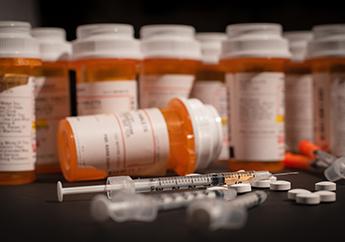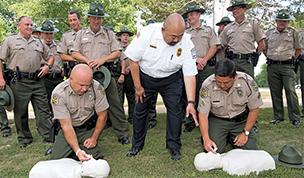
Opioids are a class of drugs that mimic the natural substances found in the opium poppy plant. Opioids work in the brain to produce a variety of effects, including pain relief. Opioids include the illegal drug heroin, synthetic opioids such as fentanyl, and pain relievers available legally by prescription, such as oxycodone, hydrocodone, morphine and methadone. Not all painkillers are opioids, such as ibuprofen and acetaminophen.
Concerns
The United States is facing an epidemic. Thousands of people are affected by opioid misuse every day. According to the Centers for Disease Control and Prevention, overdose deaths involving prescription opioids have quadrupled since 1999 and so have sales of these prescription drugs. The devastating impact of substance misuse and overdose places a tremendous burden on our families, communities and healthcare systems. It is important to keep leftover medications out of the hands of potential abusers, as well as children and pets, who are vulnerable to accidental poisonings.
People also are known to improperly dispose of expired and unused prescriptions and medications by flushing them down the sink or toilet when no longer needed. This practice can harm the beneficial bacteria that break down waste in septic systems and wastewater treatment plants. Also, municipal wastewater treatment facilities are not designed to remove all the ingredients from the medications in the treatment process. Untreated or partially treated medications are then released into nearby waterways and can impact groundwater.

